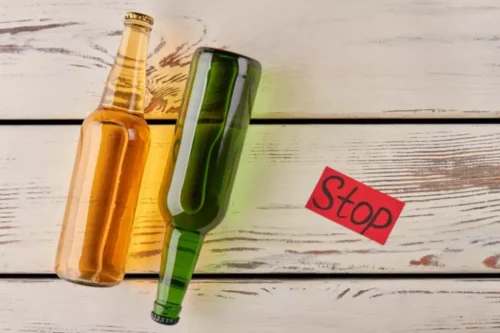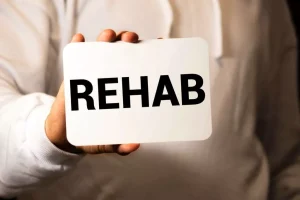
Additionally, incorporating mindfulness activities like meditation can play a role in strengthening brain circuits that may have been affected by alcohol use. Brain fog is that fuzzy, forgetful feeling that can happen for various reasons. Knowing the cause of your symptoms can help determine if you need specific treatment or lifestyle and medication adjustments to help with brain fog. Visiting Angels can provide invaluable support for your loved one dealing with brain fog or memory issues by offering compassionate senior care tailored to their personal needs. Our dedicated caregivers can assist with daily tasks, create a structured routine to enhance cognitive function, and provide gentle reminders to help manage forgetfulness. Additionally, they can offer engaging activities for your senior designed to stimulate mental acuity and improve overall well-being.
Binge Drinking Vs Alcohol Addiction: How do I know when It’s getting out of hand?
The caffeine can increase your heart rate and make ‘hangxiety’ symptoms skyrocket. By ensuring a safe and supportive environment, we can help alleviate the challenges of brain fog and memory issues, enhancing your loved one’s quality of life at home. Either reducing or giving up alcohol completely is necessary for the brain to repair itself. alcohol brain fog A healthy diet high in vitamins and minerals and lots of water supports the brain and the healing process. Increased water consumption and meals high in vitamins, omega-3 fatty acids, and antioxidants can help one recover from alcoholism. Histamine is a neurotransmitter that communicates important messages from your body to your brain.
Brain Fog Remedies in Addiction Recovery
- Download an easy word puzzle app or go old-school with a book of crosswords or Sudoku.
- Regarding brain fog and COVID-19, new research shows that brain fog is a result of the virus living in your gut after infection symptoms resolve.
- Symptoms of that inflammation include feelings of anxiety, panic, and brain fog.
- Certain foods and vitamin deficiencies play a role in brain function and can be one of the causes of your brain fog symptoms.
- Recovery from alcohol addiction is a lifelong journey that requires ongoing commitment and support.
It’s also important to do stress-relieving activities such as exercise, taking baths or meditating with an app on your phone. If you’re suffering from Candida overgrowth or SIBO, avoid fermented foods, refined carbohydrates, and alcohol above all else. While you heal your gut, you can still focus on supporting the optimal health of your brain.
Dehydration and Inflammation
Brain fog feels like the room inside your head is not clean and requires a deep refresher. Brain fog symptoms may vary from person to person, however, slowed cognitive functioning seems to be a recurring element. Making lifestyle changes such as getting enough sleep, eating a balanced diet, and exercising regularly can help reduce the severity of brain fog and speed up recovery time. There are several keys to unlocking a swift recovery from brain fog. Severe alcohol abuse can even result in smaller and lighter brains – a worrying consequence that we must be aware of. Brain fog is typically a symptom of an underlying medical condition, and it causes your brain to feel, well, foggy.

Sleep and Stress Management
Brain fog has been getting its 15 minutes of fame thanks to COVID-19 and all its related symptoms. In fact, brain fog is one of the top three symptoms often listed by long-haulers, who experience prolonged symptoms or delayed symptoms weeks and sometimes months after initial infection. “In your first trimester, you may have more nausea, poor nutrition, insomnia or lack of sleep, or other increased stressors for a variety of reasons. Brain fog is just one of the symptoms you will encounter as you break free from alcohol addiction. Fuzzy thinking, along with other physiological and psychological symptoms, can make it challenging for you to recover. Death and permanent brain damage are the worst-case scenarios of alcohol poisoning.
- But this can also trigger an exaggerated immune system response in other areas of your body, like your brain, and lead to further inflammation.
- Just like a plant needs water and sunlight to grow, your brain needs proper nutrition and hydration to function optimally and maintain healthy brain cells.
- Experiencing brain fog from alcohol withdrawal is part of your recovery journey.
- Drinking an adequate amount of water throughout the day helps maintain cognitive abilities and supports overall brain health.

There are a number of things you can do to help relieve the symptoms of brain fog. If you are experiencing any of these symptoms, it is essential to speak to a medical professional. Common hormonal imbalances that can cause brain fog include low thyroid hormone levels (hypothyroidism) and high cortisol levels (adrenal fatigue). This is because alcohol can interfere with the absorption of nutrients and lead to poor dietary habits. The direct effects of alcohol on the brain are thought to play a significant role in alcoholic brain fog.
Cleanse Your Body
As a result, they may perform poorly at school or work and be at an increased risk of injury. It’s important to treat both disorders to ensure the best possible addiction recovery outcome. Dual diagnosis treatment is the best approach to tackle these issues. Comorbidity is a repeated theme within addiction treatment, considering the symptoms of mental health are influenced by substance use and vice versa.
A Timeline for the Restoration of Cognitive Abilities after Quitting Alcohol
These programs often include regular check-ins, counseling sessions, and educational workshops on relapse prevention strategies. In group therapy settings, individuals have the opportunity to connect with others who have experienced similar challenges, fostering a sense of belonging and support. Group therapy sessions provide a safe space to share experiences, gain insights, and develop valuable peer relationships that promote healing and recovery.
